
Amudun Ebudun plays music while fish is grilled, April 11, 2019. (Xinhua/Zhao Ge)
The Tarim River has given Lop Nur people food for thousands of years. But the river cutting through this vast desert now gives them not just a growing tourism industry, but a chance at a new way of life.
URUMQI, Aug. 23 (Xinhua) -- At a Taklimakan Desert oasis, in northwest China's Xinjiang Uygur Autonomous Region, fishermen prepare their traditional cuisine -- Lop Nur grilled fish.
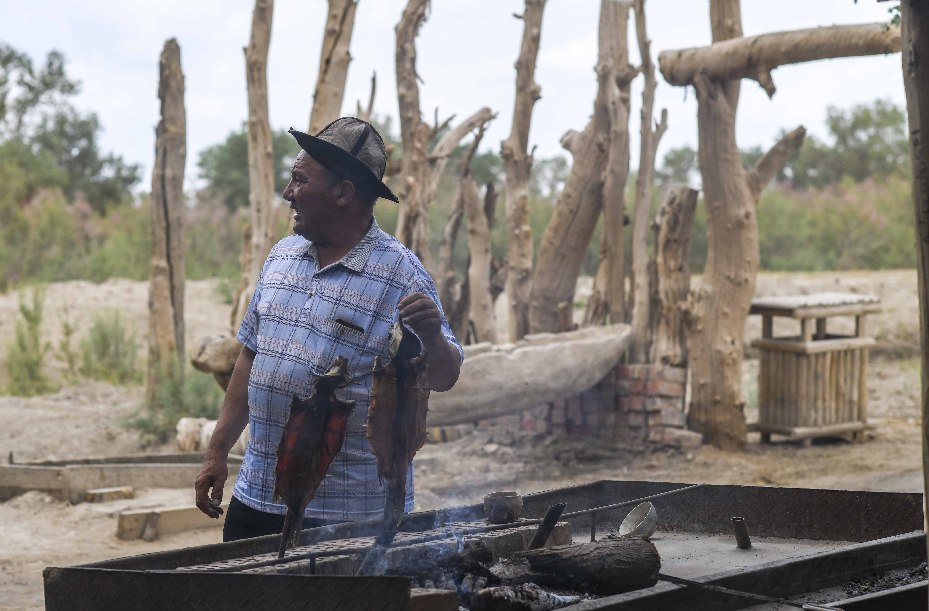
Amudun Ebudun makes Lop Nur grilled fish at his home, June 21, 2019. (Xinhua/Zhao Ge)
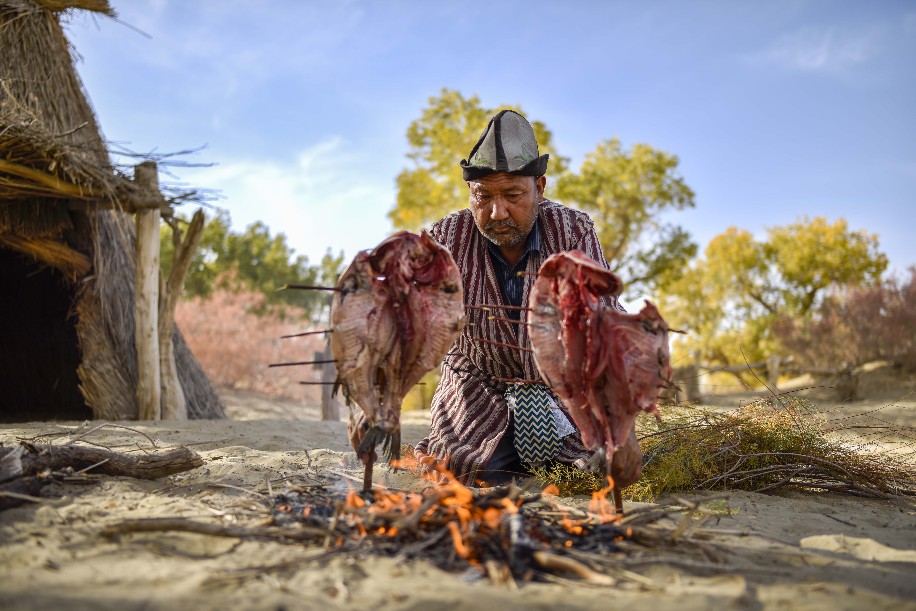
Amudun Ebudun makes Lop Nur grilled fish with the traditional method, Oct. 16, 2018. (Xinhua/Zhao Ge)
However, 61-year-old Amudun Ebudun has his own secret recipe for this dish.
"I've made a special sauce to grill the fish with myself. Apart from chilli, salt and cumin, there are other ingredients in it," Amudun says.
When asked about those ingredients, he only smiles and replies.
"The other ingredient is the flavour of the Tarim River."
Amudun's mysterious but delicious grilled fish has cast a spell on tourists. One Lop Nur grilled fish can sell for 100 yuan (about 14 U.S. dollars) during peak tourist season.
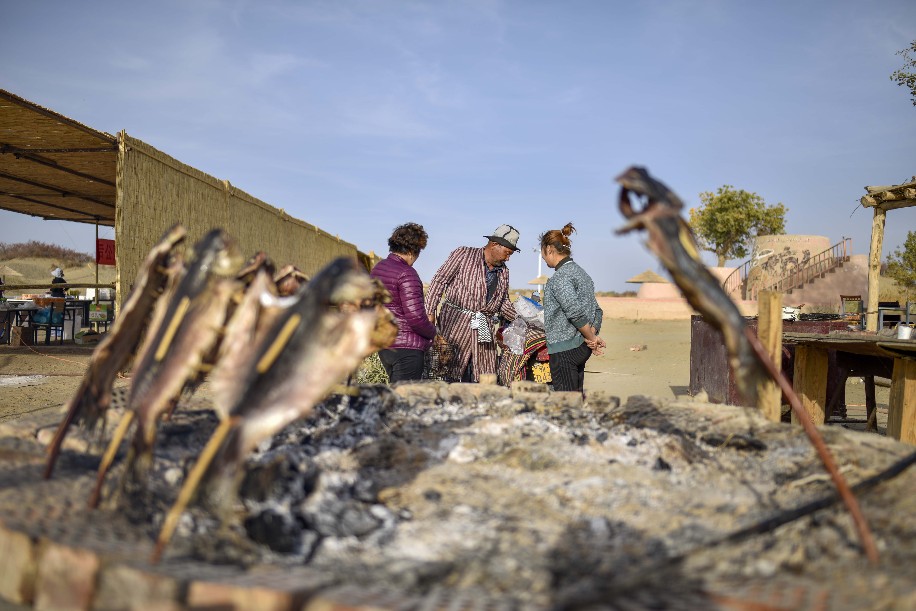
Amudun Ebudun introduces Lop Nur grilled fish to tourists, Oct. 16, 2018. (Xinhua/Zhao Ge)
But the tourists who pull over to get a taste of this oasis' traditions would find it hard to imagine how far Lop Nur people have drifted from the past.
Lop Nur people had depended heavily on fishing for thousands of years by the riverside of the Tarim, which carried snow-broth from the Tianshan and Kunlun Mountains, across China's largest desert to feed into Lop Nur lake.
But in the 1970s, excessive irrigation caused 400 km of the lower reaches of the Tarim River to silt up, and tree cover all but disappeared.
Most of the Lop Nur gave up their traditional way of living -- turning to herding, farming or opening shops.
But Amudun chose to stay, and he's now one of the "last fishermen of the Lop Nur lake."
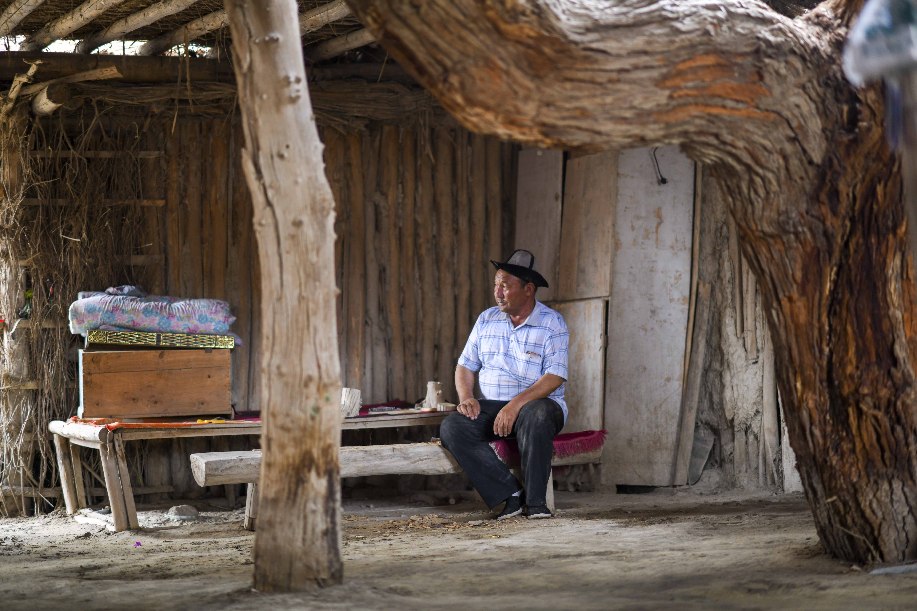
Amudun Ebudun takes a break in his home, June 21, 2019. (Xinhua/Zhao Ge)
To restore the ravaged ecosystem along the Tarim River, the Chinese government launched a project worth almost 11 billion yuan to unify water resource management of the river in 2001.
The eco-restoration project has not only brought back the populus euphratica forests, but also created new opportunities for locals.
Data shows that Yuli County, where Amudun now lives, has welcomed 780,000 tourists in the first seven months this year, up 63.14 percent from 2018. The total income from tourism in that period grew 119.42 percent year on year.
Amudun, in his wool felt hat and traditional garb, is a walking storybook for tourists eager for a glimpse of Lop Nur people's way of life.
During the peak tourist season from June to October, Amudun grills fish with his secret sauce, and in the off-season, he makes handicrafts with desert poplar wood to sell when the tourists return.
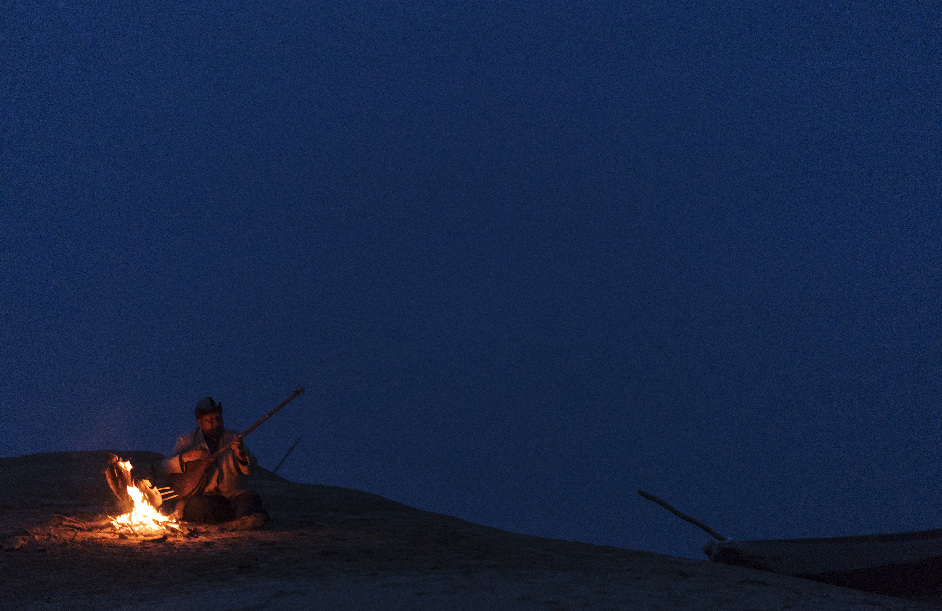
Amudun Ebudun grills fish by the lakeside, April 11, 2019. (Xinhua/Zhao Ge)
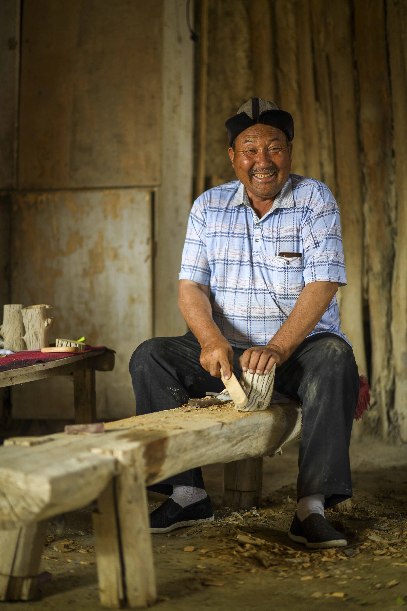
Amudun Ebudun makes a pen stand from desert poplar wood, June 21, 2019. (Xinhua/Zhao Ge)
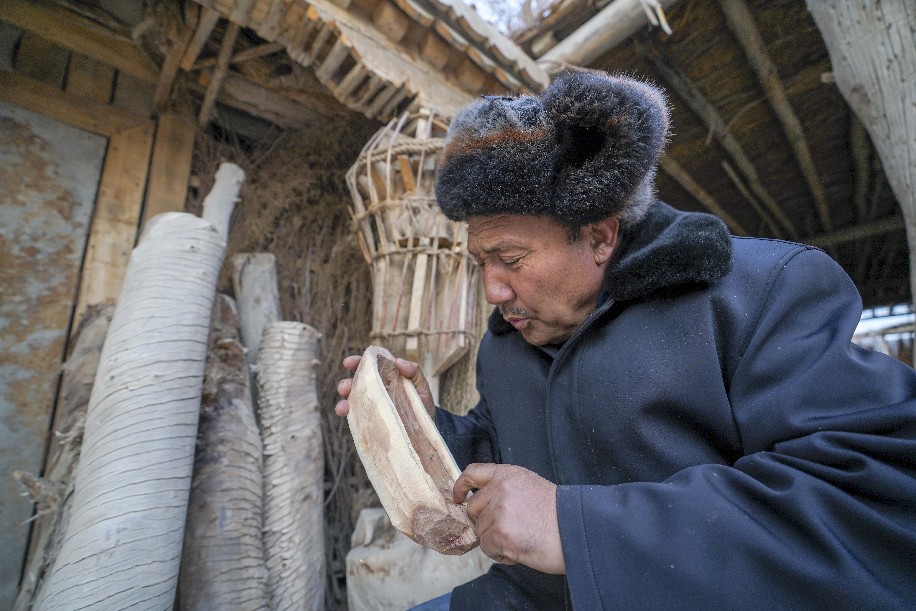
Amudun Ebudun carves a model canoe from populus euphratica, Jan 29, 2019. (Xinhua/Zhao Ge)
One way or the other, Tarim River has been and will always be the mother river to those who live along its banks and those whose wisdom echoes the gifts from mother nature.
The Tarim has given the Lop Nur people food for thousands of years. But the river cutting through this vast desert now gives them not just a growing tourism industry, but a chance at a new way of life.



